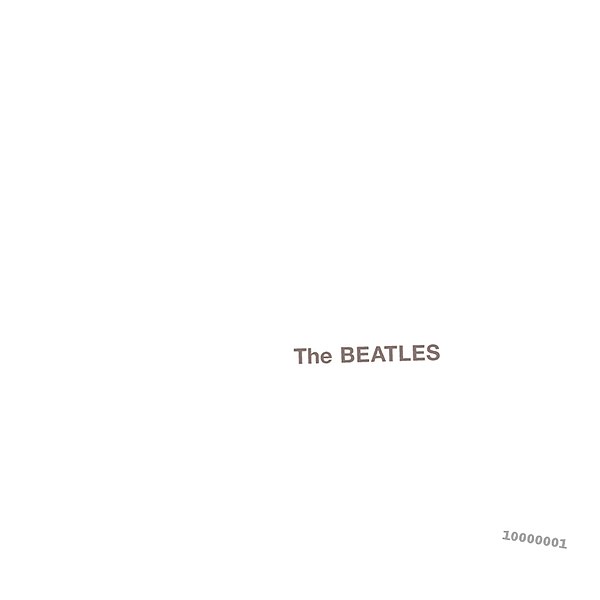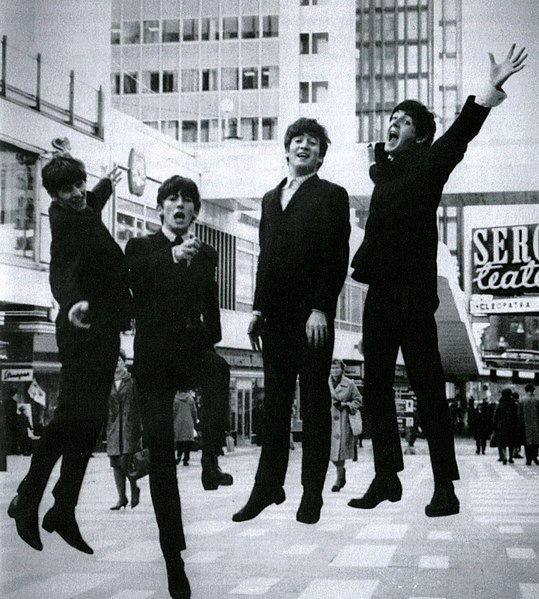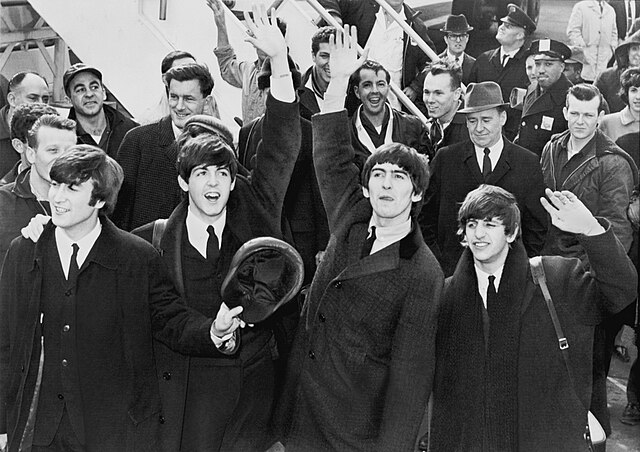Cultural impact of the Beatles
The English rock band the Beatles, comprising John Lennon, Paul McCartney, George Harrison and Ringo Starr, are commonly regarded as the foremost and most influential band in popular music history. They sparked the "Beatlemania" phenomenon in 1963, gained international superstardom in 1964, and remained active until their break-up in 1970. Over the latter half of the decade, they were often viewed as orchestrators of society's developments. Their recognition concerns their effect on the era's youth and counterculture, British identity, popular music's evolution into an art form, and their unprecedented following.
Cover of The Beatles (also known as the "White Album"). The double LP was recognised by Guinness World Records as the fastest-selling album of all time.
The Beatles in Stockholm, October 1963. Due to the crowds of screaming fans who attended the band's arrival in Sweden, the local press described the scene as "The Battle of Stockholm Airport".
Harold Wilson, Britain's Labour prime minister from 1964 to 1970. Pundits viewed him as representing a change to the established order and part of the same progressive influence that included the Beatles.
The Beatles outside the Birmingham Hippodrome, November 1963. Because the crowds were so thick, they had to be smuggled into the venue with assistance from local police.
The Beatles were an English rock band formed in Liverpool in 1960, comprising John Lennon, Paul McCartney, George Harrison and Ringo Starr. They are regarded as the most influential band of all time and were integral to the development of 1960s counterculture and the recognition of popular music as an art form. Rooted in skiffle, beat and 1950s rock 'n' roll, their sound incorporated elements of classical music and traditional pop in innovative ways. The band also explored music styles ranging from folk and Indian music to psychedelia and hard rock. As pioneers in recording, songwriting and artistic presentation, the Beatles revolutionized many aspects of the music industry and were often publicized as leaders of the era's youth and sociocultural movements.
The Beatles in 1964; clockwise from top left: John Lennon, Paul McCartney, Ringo Starr and George Harrison
Main entrance at EMI Studios (now Abbey Road Studios, pictured 2007)
McCartney, Harrison, Swedish pop singer Lill-Babs and Lennon on the set of the Swedish television show Drop-In, 30 October 1963
The Beatles arriving at John F. Kennedy International Airport, 7 February 1964








